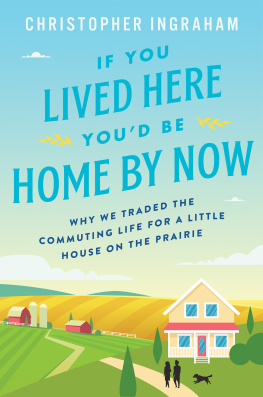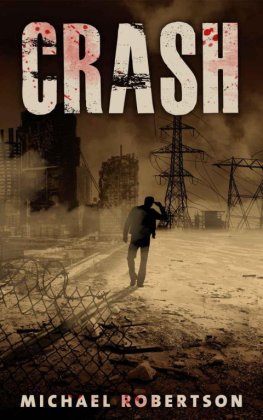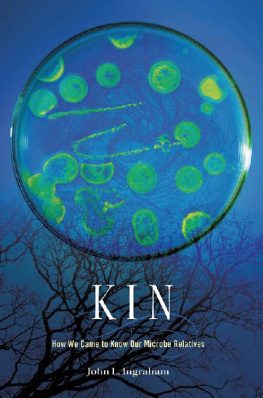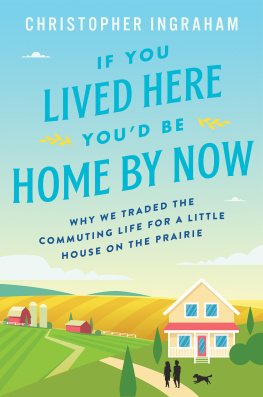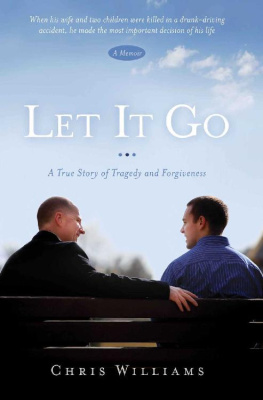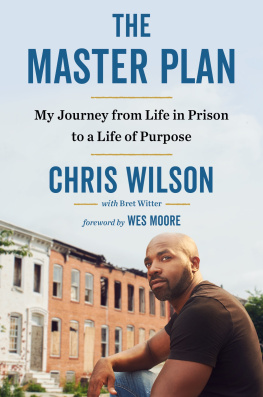To Briana
Contents
Its cold. Not really cold, mind younone of that minus-twenty-or-forty business well get later in the season. But the mercurys somewhere just south of zero, the winds are whipping like mad up and down the frozen river, and the twins are getting bored.
Daddy, when can we go? Charles asks. A certain falling inflection on the Dad-dy suggests hes about five minutes away from losing it completely, melting down right here on the snow. Hes in his jacket, snow pants, heavy boots, mittens, neck warmer drawn up above his nose, one-size-fits-all Northern Grain hat drooping over his five-year-old head, just the way he likes it. But weve been out here too long, colds creeping in between the layers, winds starting to bite.
Just a few minutes, kiddo, were next, I tell him. I gesture over to the small playground where his twin, Jack, is gleefully whizzing down a metal slide, landing with a hard thud on the ice every single time but not minding it at all. Why dont you go play with your brother for a few more minutes?
I dont want to, he says, same inflection. Despite being twins, Jack and Charles are about as different as two brothers can be. Among many other things, Jack doesnt mind the cold at all; hell run around outside for hours until hes soaked through from the snow on the outside of his jacket and the sweat within, big clouds of hot, happy exhaled kid breath following him wherever he goes. Hes a furnace. Charles, meanwhile, is hypersensitive to the cold. Hes taken to insisting on having his snow pants on for even the shortest excursion outdoors, even if its just a quick hop from the heated house to the heated car and back. He hates the feel of cold pants on his legs.
Well then, go over there with Mom and William, I say. My wifes helping the one-year-old, our Minnesota baby, chuck fifteen-pound frozen turkeys at an assortment of short PVC pipes standing on their ends. Turkey bowling, they call it up here. Yet another way the natives stare down the relentless winters with whimsy and good cheer. Williams mostly given up on trying to manhandle the frozen birds and is basically just flinging himself down the ice alley toward the pipes. His overstuffed winter gear gives him roughly the same proportions as a bowling ball, so its not a bad idea.
I dont wanna, Charles says. Hes about to go code red and Ive exhausted all my other options so its time to go nuclear: I push him down into the snow.
Hes too shocked to say anything at first but I can see the rage and the laughter duking it out across his face. Daddy, he says, trying to get back up, but I knock him down again. Got emhes laughing now. DADD but I give him another shove before he can get it out and hes rolling around in the snow giggling. Jack hears the commotion, comes tearing over to where we are, and jumps on my back. Its on.
The three of us tumble through the snow, down the slight slope to where the deep stuff is by the river shore, among the frozen cattails still standing from the fall. I briefly wonder if one of us is going to break through some thin ice to a layer of mud or worse below but I realize thats stupidthe temperature hasnt been above freezing in months, its barely even been above zero. The rivers been frozen solid for a month at least, probably longer than that.
Soon Briana drops William on the pile and then were all there, tumbling around in the frigid snow, the kids whooping and hollering and not even caring when one of them lands face-first in it. Suddenly Jack sits bolt upright.
Do you hear it? he says. We all stop and sit still. The sounds of distant baying and yipping grow louder and suddenly there they area team of eight lean, muscular dogs hitched to a pair of canvas sleds. Its finally our turn to run the river.
Back in the summer of 2015 I had no idea that Id just stumbled across the dataset that would change my life, uproot me and my family from our cozy but constrained suburban D.C. life, and plop us down 1,400 miles away at the edge of the vast, open prairie. A place where it snows eight months out of the year, where winter starts in October and doesnt end until May. A place where taking the kids out on a weekend dogsledding excursion is just one of those things people do.
The dataset in question was an obscure late-1990s project of the U.S. Department of Agriculture, intended to quantify every single county in America on the physical characteristics that enhance the location as a place to live. It assigned a score to counties based on physical characteristicshills, valleys, bodies of water, nice weatherthat most people would agree make a place pleasant to live in.
As a data reporter for the Washington Post, I thought Id seen it all: numbers that explain everything from the economy to waffles to the zombie apocalypse. But here was something differentnatural beauty, quantified. And with impeccable federal credentials.
Even better, the project ranked the counties according to where they fell on the scale. Which of Americas more than three thousand counties are the ugliest, according to the federal government? And which the most scenic? And where, reader, does your own county fall into the mix?
The story practically wrote itself, a perfect diversion for D.C.s August recess doldrums. I mapped the numbers out, wrote a few hundred words to accompany them, slapped a headline on it all (Every County in America, Ranked by Scenery and Climate), and called it a day.
Like countless other pieces of data-driven ephemera Ive written, I forgot about it almost as soon as my editor hit publish the following Monday.
Funny thing about ranking placesfor every city or town or county thats at the top of some list, there has to be one all the way down at the bottom. As a country were obsessed with superlativeswe want to raise our families in the best places, visit the most famous landmarks, climb the highest mountains, and swim the clearest, bluest seas.
But what about all those other places that dont make the cut?
This is a story about one of those forgotten placesan obscure corner of the heartland that, from the vantage point of an Excel sheet on a coastal desktop, appeared to have nothing going for it. No distinguishing features whatsoever, save a last-place finish in a county beauty pageant run by federal statisticians in the late 1990s.
Red Lake County (pop. 4,055) in northwestern Minnesota is a place so lacking in superlatives that proclaiming itself the only landlocked county in the United States that is surrounded by just two neighboring counties is the closest thing to a boast that youll find on the countys website.
As it turns out, Red Lake County doesnt have any actual lakes. It doesnt have any hills. The summers are hot, and the winters are brutally cold. You crunch all those numbers together on a spreadsheet, and it may not be a surprise that the place came in dead last.
I tossed the county websites border trivia into the story along with a joke about Red Lake County being the absolute worst place to live in America, and didnt think twice about it.
But now the absolute worst place to live in America is the place I and my family call home. This book is the story of how we got here, what we found when we arrived, and everything weve experienced since then. How our lives changed when we moved from one of the nations wealthiest suburbs (median household income: $110,000) to a working-class farming community (median income: $50,000) hundreds of miles from anywhere.
Its a story about an education in the ways of small-town life. Its about the people whom Ive come to call friends and neighbors, whove taught us how to fry walleye, make corn shocks, and press apple cider by handand who also have gently mocked our big-city eccentricities like goat cheese and eggplant parmesan.

